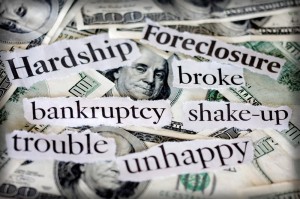How do you react when failures happen?
By Steve Moran
In any senior living community there are likely at least 1,000 touchpoints with residents, family, team members, prospects, the public and vendors EVERY SINGLE DAY. Most of the time most of those touchpoints are completely benign. Things happen the way they are supposed to or they don’t happen exactly the way they are supposed to, but no one notices or they are such insignificant fails that no one cares.
That being said, each touchpoint has the potential to create extraordinary positive moments or turn into colossal failures. Both of which will happen a few times a year in every single senior living community.
Extraordinary Positive Moments
The positives happen more often in some communities than others and they happen to certain people more often than they do to others. They happen because those involved, look for opportunities to create extraordinary moments from the huge to tiny. This happens because hearts are tuned to other people.
In those communities that have more than their fair share of these extraordinary moments that unfair share happens because they notice, share and celebrate these events when they happen.
The Failures
Failures are impossible to avoid. They happen because people are human, because mistakes are made, because some expectations are unreasonable. They happen because sometimes people are just plain mean or in a bad mood. Mostly they just because . . . .
The question really is how do you react with a failure happens?
A few days ago INC published this extraordinary article, This Restaurant Owner Issued an Outstanding Response to the New York Times. Here is the story:
Thomas Keller is a world famous chef who has won numerous awards and praise . . . meaning he is someone who completely gets the customer experience. Then the New York Times published a blistering review of his New York Restaurant Per Se.
Knowing this, there are two possibilities, either the restaurant failed or the criticism was unfair. Here is how Keller responded:
TO OUR GUESTS:
At all of our restaurants, in our kitchens and dining rooms, we make every effort to provide you with the best possible experience. We consider it our professional responsibility to ensure that every one of you feels special and cared for. To us, it is imperative that we improve and evolve every day. We constantly examine ourselves, our menu, our service and our standards.
Regretfully, there are times when we do not meet those standards. The fact that The New York Times restaurant critic Pete Wells’ dining experiences at Per Se did not live up to his expectations and to ours is greatly disappointing to me and to my team. We pride ourselves on maintaining the highest standards, but we make mistakes along the way. We are sorry we let you down.
We are not content resting on what we did yesterday. We believe we can do better for ourselves, our profession and most importantly our guests. We have the opportunity, the tools, the self-motivation and the dedication to do so.
When we fall short, we work even harder. We are confident that the next time you visit Per Se or any of our other restaurants, our team will deliver a most memorable experience.
Yep, that’s right, he apologized without excuse and unconditionally. The temptation to excuse or explain why a failure happened is as tempting as cocaine is addictive, and, even when it is completely right, it essentially is never helpful to your cause.
Doing It Right
It is weird but it turns out that almost always colossal failures are tremendous relationship and culture opportunities when handled right:
-
Apologize unconditionally
-
Talk about what you learned from the event you apologized for.
-
Take real action to demonstrate that you really learned from the event.
-
Talk about how the process made your organization better.
What experience have you had with turning a failure into a win?








